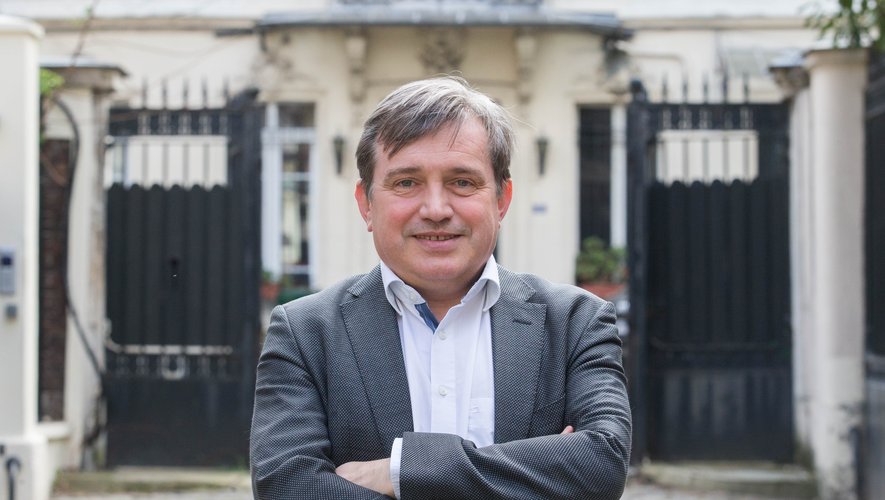Limouxin, also president of the Federation of Pharmaceutical Unions of France (FSPF), responded to the request of journalists Florence Boulenger and David Ghesquières. The book, entitled “Our health is at stake”, will be available from May 24 at Vuibert editions. Philippe Besset looks back on this collaboration, and talks about his contribution to this collective work in which forty health professionals participated… and not only.
How did your participation in this book begin?
I simply accepted the invitation of Florence Boulenger and David Ghesquières, who were looking for people capable of enlightening them on the world of health in our country. I met them once face-to-face, then our following exchanges took place by telephone. Their way of proceeding is very interesting: they took verbatims of all the participants, and organized them using a plan. This work thus takes the form of a collection of experiences and declarations of multiple health actors, seen in the broad sense since the two journalists also give the floor to a deputy and a philosopher. The book begins with two small fictions, news that foreshadows what our health system could look like in 50 or 60 years, then the interviews of each other give clues on what should be done.
Do the book and its contributors give an alarmist vision of the situation?
It is a purely journalistic work, in the sense that Florence Boulenger and David Ghesquières started this project without any preconceived idea. Each professional says quite different things: for my part, I believe that we can be quite proud of the French system inherited from 1945, if we compare it to other systems in the world.
How do you approach the issue of health?
Through two themes. The first is the organization of our system in relation to that of various countries. The way in which it is financed, in particular. However, the particularity of the French system lies in the fact that it treats everyone in the same way, rich or poor. There is no privileged access and the system even grants a very very broad opening to innovations. But as the demand is infinite insofar as there will always be sick people, the regulation is not done and this generates constraints on the supply of care. I thus claim that our system has its limits, and that we must make citizens aware of self-regulation. I’m thinking, for example, of patients absolutely insisting on having an MRI to confirm something that everyone already knows about, simply because they are entitled to it and it’s free. Compared to the American and British systems, which represent the other extreme, I consider that our model is the right one: it would just be enough to implement it in a better way.
What is the second theme?
The new role of pharmacies in public health for everything related to prevention and screening. They are an open door to care. The pharmacy is a place where everyone can go, and inside which talking is simple. We try to carry out this health education there, by playing the role of intermediary. But to achieve this you need men, arms as I like to say, but there are currently not enough doctors, nurses, pharmacists. There are not enough of us because society has changed. People now want to work more from home to reconcile their personal and professional lives… and this is not really possible in the field of health, where jobs are very often based on face-to-face meetings. We need to review the training and attractiveness of our activities.
How to implement your recommendations?
Last week the National Council for Refounding Health met in Paris for its first stage of work. This body considers that if we want our social insurance system to improve and function better, we must contribute ideas. 250 ideas came out of this meeting, currently being tested in French territories: the Ministry of Health will publish sheets, so that each territory appropriates those of the others. The Pyrénées-Orientales, for example, are testing an initiative that I find excellent: the ARS and the departmental council have joined forces to create a tool to welcome professionals who want to settle in their home. They promote their territory, point out the areas where there is a lack of a doctor or a physiotherapist, but they also help to find solutions because they know who to call depending on the needs… I am thinking in particular of the work of the spouse when a practitioner settles in a remote area. This orientation approach has been requested for a long time from the FSPS. The solutions exist but are little known, not deployed. The famous SAS, intended to find a medical solution for patients without a doctor, already exists but the population does not necessarily know it yet. In the Loire, a system combines doctors who stay behind a screen, with a nurse who goes to the patient’s home. We could do the same thing with pharmacists, they are everywhere! The patient would only have to go to a pharmacy. Elsewhere, there are also buses with the help of which doctors travel one day a week to outlying areas.
Will the implementation of these ideas be enough to break the spiral of medical deserts?
In the next fifteen years, the number of doctors will still be insufficient to meet the needs of the population, because training a doctor takes eight years. We are not going to wait fifteen years with our arms crossed! I do not want a big law that changes things, and there is no question of opting for private insurance or a national health system which does not work in England and causes two-tier medicine. Our country remains the one where there are the fewest inequalities in terms of health: we must strive to reduce them even more while preserving what makes the strength of our system.

